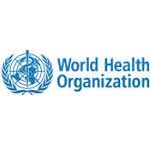OBJECTIVES OF THE PROGRAMME
The mission of WHO's Health Emergencies Programme (The Programme) is to help countries, and to coordinator international action, to prevent, prepare for, detect, rapidly respond to, and recover from outbreaks and emergencies
DESCRIPTION OF DUTIES
Provide substantive support to and there by facilitate the development, implementation and evaluation of country strategies and work-plans pertaining to the Country Health Emergency Preparedness & International Health Regulations national programmes, ensuring compliance with WHO's organization-wide CPI strategies. Track the status of technical and financial support to country core capacities, the development of national action plans and the costing to prepare for, detect and mount a rapid and effective response to public health emergencies. Provide guidance and training to counterparts of national authorities to develop critical core capacities, with an emphasis on cultural, linguistic or other particularities pertaining to the local area of responsibility. Support the implementation of policies, norms, standards and guidelines to support the development of critical core capacities for global health security. Liaise on multi-disciplinary and cross-cutting approaches and activities with key partners at the country level, to ensure the successful implementation, monitoring and evaluation of capacities in line with IHR (2005) requirements, as well as the identification of financing for country plans. As and when required, support the assessment of the performance of national transport, tourism and mass gatherings capacity, the dissemination of practical guidelines, facilitate the effective implementation of national surveillance systems in accordance with IHR (2005) requirements.Perform any other related duties, as required by the functional supervisor
REQUIRED QUALIFICATIONS
Education
Essential: First-level university degree in a health related field or a Medical degree from an accredited/ recognized institute.
Desirable: Advanced level university degree (Masters level or above) in a health related field. Specialized training in epidemiology. Specialized training in emergency/humanitarian response. Post-graduate degree in public health or a public health-related discipline from an accredited/recognized institute
Experience
Essential: Atleast 5 years of relevant experience in planning, developing and implementing health security, emergency, surveillance, disease control, and/or public health programmes. Relevant experience with the inter-agency mechanisms used to coordinate international preparedness for and response to health emergencies, including those most relevant to coordination of health policy and action in health emergencies. Relevant experience with or in the implementation of International Health Regulations (2005).
Desirable: Relevant work experience in WHO, other UN agencies; experience working in relevant non-governmental or humanitarian organizations. Experience in developing countries.
Skills
Knowledge of International Health Regulations (2005), the epidemiology of infectious diseases and other global health security threats, and of issues and practices for disease prevention and control. Proven ability to manage projects, build partnerships with multiple partners in the context of health emergencies. Demonstrated organizational skills with the ability to multi-task and produce results under pressure. . Good knowledge of the local culture, customs and language/s.
WHO Competencies
Teamwork
Respecting and promoting individual and cultural differences
Communication
Use of Language Skills
Essential: Expert knowledge of English.
Desirable:
REMUNERATION
Remuneration comprises an annual base salary starting at TZS 145,847,000 (subject to mandatory deductions for pension contributions and health insurance, as applicable) and 30 days of annual leave.


